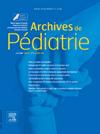Investigating the effect of peer-led educational intervention on behaviors related to pubertal health and its determinants in high school girls of Genaveh, Iran: Application of social cognitive theory
IF 1.3
4区 医学
Q3 PEDIATRICS
引用次数: 0
Abstract
Background Empowering adolescents in the field of puberty health is one of the important goals of public health programs. The present study was carried out with the aim of determining the effect of peer-led training on puberty-related behavior and its determinants using social cognitive theory. Methods: A total of 245 teenage girls were randomly divided into two groups: the intervention group and the comparison group. The questionnaire measuring puberty-related behavior and its determinants was self-administered and completed before and 2 months after training in the two groups. One session for parents, four sessions for peer educators, and four sessions for participants were conducted for 1 month. Results: In the intervention group, unlike the comparison group, the mean scores of knowledge, outcome expectations, self-efficacy, self-control, social support, and behavior increased significantly after training (p <0.05). Based on regression analysis, outcome expectations and social support were the main determinants of puberty-related behavior (adjusted R2 = 0.464). Conclusion: The findings of this study support the effectiveness of the peer-led educational intervention based on social cognitive theory in the improvement of puberty-related behavior and its determinants, which can be used in the design of puberty-related health promotion programs. Further research to assess the longer-term outcomes and to examine other theories of behavior change are suggested.
调查同伴教育干预对伊朗 Genaveh 高中女生青春期健康相关行为及其决定因素的影响:社会认知理论的应用。
背景:增强青少年在青春期健康方面的能力是公共卫生项目的重要目标之一。本研究旨在利用社会认知理论确定同伴引导式培训对青春期相关行为及其决定因素的影响:共有 245 名少女被随机分为两组:干预组和对比组。两组分别在培训前和培训后 2 个月自填调查问卷,测量青春期相关行为及其决定因素。家长培训一次,同伴教育者培训四次,参与者培训四次,为期一个月:结果:与对比组不同,干预组的知识、结果预期、自我效能、自我控制、社会支持和行为的平均得分在培训后都有显著提高(P 2 = 0.464):本研究结果支持基于社会认知理论的同伴教育干预在改善青春期相关行为及其决定因素方面的有效性,可用于设计青春期相关健康促进计划。建议进一步开展研究,以评估长期结果并研究行为改变的其他理论。
本文章由计算机程序翻译,如有差异,请以英文原文为准。
求助全文
约1分钟内获得全文
求助全文
来源期刊

Archives De Pediatrie
医学-小儿科
CiteScore
2.80
自引率
5.60%
发文量
106
审稿时长
24.1 weeks
期刊介绍:
Archives de Pédiatrie publishes in English original Research papers, Review articles, Short communications, Practice guidelines, Editorials and Letters in all fields relevant to pediatrics.
Eight issues of Archives de Pédiatrie are released annually, as well as supplementary and special editions to complete these regular issues.
All manuscripts submitted to the journal are subjected to peer review by international experts, and must:
Be written in excellent English, clear and easy to understand, precise and concise;
Bring new, interesting, valid information - and improve clinical care or guide future research;
Be solely the work of the author(s) stated;
Not have been previously published elsewhere and not be under consideration by another journal;
Be in accordance with the journal''s Guide for Authors'' instructions: manuscripts that fail to comply with these rules may be returned to the authors without being reviewed.
Under no circumstances does the journal guarantee publication before the editorial board makes its final decision.
Archives de Pédiatrie is the official publication of the French Society of Pediatrics.
 求助内容:
求助内容: 应助结果提醒方式:
应助结果提醒方式:


